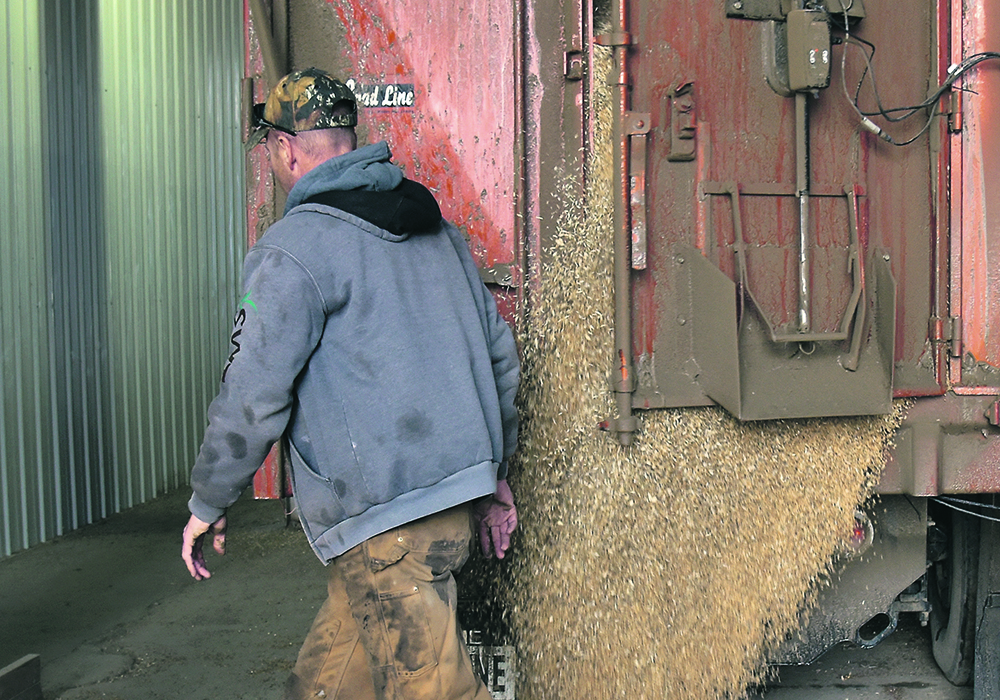A report commissioned by Saskatchewan farm groups concludes that contracts need to be simplified and made more understandable
SASKATOON — A study of 21 grain contracts recommends more collaboration between grain sellers and buyers to develop contracts that work, but also suggests a standard grain contract if that doesn’t happen.
Marlene Boersch of Mercantile Consulting Venture did the study for five Saskatchewan crop commissions and the Agricultural Producers Association of Saskatchewan. She presented her findings at the APAS annual meeting in December.
“We think it’s high time to simplify them, for both parties’ sake, and make them more understandable,” she said after her presentation. “I think there’s even a chance to smooth out the supply chain issues a little bit and having a much more concrete understanding of what the responsibilities are for both sides.”
Read Also

Agri-business and farms front and centre for Alberta’s Open Farm Days
Open Farm Days continues to enjoy success in its 14th year running, as Alberta farms and agri-businesses were showcased to increase awareness on how food gets to the dinner plate.
Boersch said ideally the parties would get together and work toward a collaborative contract; a standard contract would be a Band-Aid solution because enforcing a standard could be tough.
“It’s a difficult road but I think if you really study the contracts, the complexity of them, and how they differ between companies, how they are very hard to administer on the producer side… I think there is a little bit of room to balance them out and come out simply with a better more simple and more clear product,” she said.
Boersch examined contracts from major grain buyers in Canada, as well as the standard Grain Trade Australia No. 6. She said the latter could be a template if that is the desired route.
Grain companies are comfortable with the way things are, she said, but producers became more concerned during the 2021 drought when they found themselves unable to deliver promised grain and were subject to penalties.
She said she found issues in fairness, clarity and overreach. Many contracts are unbalanced, particularly when it comes to delivery terms.
“For example, in most contracts there are 90- to 180-day options for the buying company whereas your terms that specify how you have to deliver are much, much shorter,” she said.
Handling overages and under-ages “should not be rocket science,” Boersch said.
Commercial contracts between companies are clear and those between producers and companies should be the same, she said.
Penalty calculations and how they are applied varied greatly among the contracts.
Boersch said costs related to supply chain issues should not be passed back to growers because most are not within grower control.
“Occurrences completely out of the control of producers, but within the purview of companies, should not be a valid excuse to expand contract terms,” she said in the study. “Companies should not be able to delay delivery periods without consequence and need to take responsibility for all terms under the contract. They should find ways to execute accordingly.”
Co-operation among producers and companies would be a good starting point to fix the imbalances and issues. Essential elements under discussion must include delivery delays and specific terms.
“If you have a f.o.b. farm or delivered elevator contract, which will be most of your contracts, I would propose a one-week extension allowed for the buying side to accommodate problems, full stop,” Boersch said. “If they can’t do that, they are actually out of contract. And that sounds very radical but why is that?”
Producers would be bound by the same terms.
She said simplified terms, focusing on contract fundamentals, tightening remedial action and fees, more clarity and transparency, and defining parties’ responsibilities would all lead to better contracts.
















